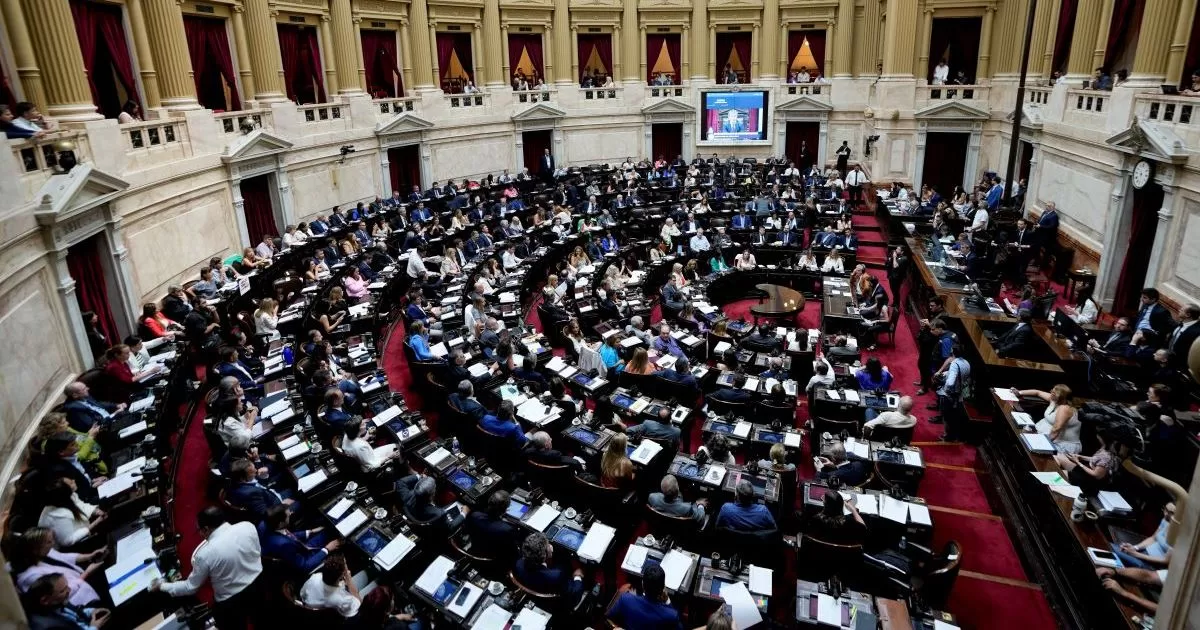BUENOS AIRES – The adjustment plan of Argentine President Javier Milei received a nod on Thursday from the International Monetary Fund, which released $4.7 billion and praised the new government for having taken “bold measures” to restore economic stability and address problems that hinder growth and the investment.
“These first actions are beginning to bear fruit,” said the FMI in a special report on the country. “Efforts are being made to build the social and political framework that supports the stabilization plan,” the organization said, but also warned that the path to stability presents “important challenges” due to political divisions in Congress and the “fragile ” Social situation.
The report was made public a day after the approval of the disbursement as part of a refinancing program of a $44 billion loan granted in 2018.
“Reform package”
This is the seventh review of the agreement by the IMF executive board and the first under Milei’s presidency. It took place while the country’s Chamber of Deputies is debating a reform package that Milei considers key to the success of his economic program.
In 2018, Argentina received the largest loan granted by the IMF in its history for an amount of almost 55 billion dollars, of which 44 billion dollars were finally disbursed.
At the beginning of 2022, Alberto Fernández’s government agreed to a new refinancing program through which the country committed to meeting a series of fiscal and monetary emission goals, among others.
These guidelines have been suspended since mid-2023, coinciding with the electoral campaign that brought Milei to the presidency.
In its 119-page report, the IMF highlighted that since the previous review of the program during the Fernández administration, imbalances and distortions “have worsened dangerously” in Argentina and the program was diverted with “very expansive and inconsistent” policies. As examples, he mentioned an increase in the fiscal deficit, the depletion of international reserves and rampant triple-digit inflation, among others.
“Adjustment and deregulation” plan
Shortly after taking office as president on December 10, Milei devalued the peso by 50% and launched a plan for adjustment and deregulation of an economy that in recent years has had strong state intervention. The measures include cuts in public spending to reduce the fiscal deficit, thousands of layoffs in the public administration and the reduction of subsidies to public transport and the energy sector.
The Milei government took advantage of the IMF announcement to highlight its plan.
“This ratifies the efforts we are making on the path to achieving zero deficit and order in public accounts,” said presidential spokesman Manuel Adorni on Thursday at a press conference.
Argentina is one of the countries with the highest inflation in the world: it rose to 25.5% in December and was 211.4% throughout 2023, the highest level in the last three decades. More than 40.1% of the population lives in poverty.
As part of the review, the IMF changed economic forecasts for Argentina and expects a contraction of 2.8% this year before returning to growth of 5% in 2025. In 2023 the South American nation’s activity would have fallen by 1, 1%.
As a gesture of confidence towards the new government, the IMF also approved an extension of the agreement until December 31, 2024, which guarantees new disbursements in the coming months.
In its report, the IMF indicated that there are important challenges in the medium term that have not yet been addressed. The Gross Domestic Product per capita, he cited, has fallen more than 10% since 2011, reflecting a low level of investment and a fall in productivity in a context of a rise in informal work.
Source: AP

